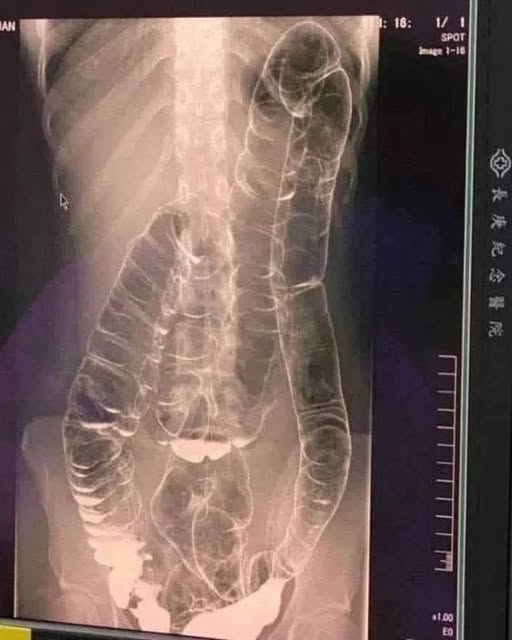Chronic constipation, often dismissed as a minor inconvenience, can escalate into severe health issues if neglected. A poignant case involves a young woman who endured years of persistent constipation. After more than two weeks without a bowel movement, she sought medical attention, leading to a startling discovery: her colon had become so distended that it extended toward her chest, nearing her heart. This excessive stretching had nearly obliterated the colon’s natural folds, impairing its functionality and posing life-threatening risks.

One of the most perilous outcomes of chronic constipation is significant colon distension. An overstretched colon loses its contractile efficiency, making bowel movements increasingly challenging. This creates a vicious cycle where waste remains longer in the body, exacerbating the problem. Additionally, prolonged stool retention allows harmful bacteria and toxins to reabsorb into the bloodstream, potentially causing bloating, fatigue, halitosis, acne, and a compromised immune system.
Chronic constipation can also lead to painful conditions like hemorrhoids and anal fissures. Straining to pass hard stool exerts pressure on rectal veins, resulting in swollen, painful hemorrhoids that may bleed. In severe cases, small tears known as anal fissures can develop around the anus, causing sharp pain during bowel movements. A more severe risk is bowel obstruction, where the colon becomes so impacted with waste that it completely blocks the intestines. This can cut off blood supply to parts of the gut, leading to infections and tissue death (necrosis). In life-threatening cases, emergency surgery is required to remove the damaged sections of the intestine.
Studies have also linked chronic constipation to an increased risk of colorectal cancer. The prolonged presence of waste in the colon increases exposure to cancer-causing compounds, leading to chronic inflammation and abnormal cell growth.
Fortunately, effective prevention and management strategies for constipation involve simple lifestyle modifications. Increasing dietary fiber intake is paramount. Consuming more whole grains, nuts, seeds, fruits, and vegetables promotes healthy digestion. Foods like prunes, apples, pears, flaxseeds, and chia seeds act as natural laxatives, encouraging bowel movements. Adequate hydration is another crucial factor. Drinking at least 2-3 liters (8-12 cups) of water daily softens stools, facilitating easier passage. Warm lemon water in the morning can also aid digestion and relieve constipation.
Regular physical activity is vital for bowel health. Movement stimulates intestinal function and helps maintain regular bowel movements. Engaging in at least 15-30 minutes of walking, yoga, or stretching daily can significantly improve digestion. Establishing a consistent bathroom routine is also beneficial. Training the body to have a bowel movement at the same time each day—preferably after meals—can encourage regularity. Ignoring the urge to go can worsen constipation over time.
Limiting processed and low-fiber foods can prevent constipation from developing. Foods such as red meat, dairy products, fried foods, fast food, and refined carbohydrates (like white bread and pastries) slow down digestion and contribute to harder stools. Natural remedies can also provide relief. Herbal teas such as peppermint, fennel, or ginger aid digestion, while supplements like magnesium and aloe vera juice may help regulate bowel movements.
If constipation persists for several days, it is important to monitor dietary and lifestyle habits closely. Seeking medical attention is necessary if symptoms last longer than a week, or if severe bloating, vomiting, extreme discomfort, or blood in the stool occurs. Ignoring constipation can turn a minor issue into a serious health risk. Taking proactive steps to support digestive health can prevent complications and promote long-term well-being. Paying attention to small, daily habits can make a significant difference in maintaining overall health. Listening to the body’s signals and making adjustments when needed is essential for preventing long-term digestive problems.





